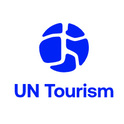Canary Islands Joins Observatory Network As Members Unite To Provide Data For Tourism’s Recovery
The Canary Islands has been confirmed as the latest member of the growing International Network of Sustainable Tourism Observatories (INSTO), overseeing the responsible development of tourism worldwide. The announcement came as INSTO, an initiative of the World Tourism Organization (UNWTO) held its annual meeting, bringing together key stakeholders from both the public and private sectors.
Since its establishment in 2004, the network of Sustainable Tourism Observatories has steadily grown in both size and influence. Now, as its members help guide tourism's recovery from the impacts of the COVID-19 pandemic, it met virtually for the second time since the start of the current crisis. The annual meeting provided more than 100 international experts with a platform for open dialogue about the future direction of tourism and on the support destinations need to maintain their efforts to place sustainability at the heart of future growth.
Warm welcome to new member
The Tourism Observatory of the Canary Islands, one of Europe's most popular destinations, will join the other 30 INSTO members in monitoring and measuring tourism and providing clear, objective data to guide evidence-based decision making.
UNWTO Secretary-General Zurab Pololikashvili said: "UNWTO warmly welcomes the Canary Islands into our global network of observatories. This demonstrates the Islands' strong commitment to tourism as a force for sustainability and development. It will facilitate the generation of more and better evidence of the economic, environmental and social impacts that tourism has on the Canary Islands."
Ms. Teresa Berástegui Guigou, Vice-Minister of Tourism for the Canary Islands, added: "The incorporation of the Canary Islands into the UNWTO International Network of Sustainable Observatories takes place at a crucial and decisive moment for the global tourism sector, due to the health crisis and the growing importance of working both on the sustainability of destinations, and on the generation of tourism knowledge for decision-making."
Immediate concerns and long-term objectives
A range of pressing issues were discussed during the annual INSTO meeting, with inputs from the public and private sectors and from civil society, including academia. Specific issues addressed included measuring the needs of destinations, emerging public health indicators, and varying tourism products in order to mitigate the social and economic impacts of the current crisis.
The meeting also focused on ongoing issues for INSTO members, including measuring the satisfaction of both tourists and residents of tourists destinations, assessing and improving governance, and identifying how combined national and local actions are paving the way for a sustainable response, resilience and recovery.
About UN Tourism
The World Tourism Organization (UN Tourism) is the United Nations agency responsible for the promotion of responsible, sustainable and universally accessible tourism.
As the leading international organization in the field of tourism, UN Tourism promotes tourism as a driver of economic growth, inclusive development and environmental sustainability and offers leadership and support to the sector in advancing knowledge and tourism policies worldwide.
Our Priorities
Mainstreaming tourism in the global agenda: Advocating the value of tourism as a driver of socio-economic growth and development, its inclusion as a priority in national and international policies and the need to create a level playing field for the sector to develop and prosper.
Promoting sustainable tourism development: Supporting sustainable tourism policies and practices: policies which make optimal use of environmental resources, respect the socio-cultural authenticity of host communities and provide socio-economic benefits for all.
Fostering knowledge, education and capacity building: Supporting countries to assess and address their needs in education and training, as well as providing networks for knowledge creation and exchange.
Improving tourism competitiveness: Improving UN Tourism Members' competitiveness through knowledge creation and exchange, human resources development and the promotion of excellence in areas such as policy planning, statistics and market trends, sustainable tourism development, marketing and promotion, product development and risk and crisis management.
Advancing tourism's contribution to poverty reduction and development: Maximizing the contribution of tourism to poverty reduction and achieving the SDGs by making tourism work as a tool for development and promoting the inclusion of tourism in the development agenda.
Building partnerships: Engaging with the private sector, regional and local tourism organizations, academia and research institutions, civil society and the UN system to build a more sustainable, responsible and competitive tourism sector.
Our Structure
Members: An intergovernmental organization, UN Tourism has 160 Member States, 6 Associate Members, 2 Observers and over 500 Affiliate Members.
Organs: The General Assembly is the supreme organ of the Organization. The Executive Council take all measures, in consultation with the Secretary-General, for the implementation of the decisions and recommendations of the General Assembly and reports to the Assembly.
Secretariat: UN Tourism headquarters are based in Madrid, Spain. The Secretariat is led by the Secretary-General and organized into departments covering issues such as sustainability, education, tourism trends and marketing, sustainable development, statistics and the Tourism Satellite Account (TSA), destination management, ethics and risk and crisis management. The Technical Cooperation and Silk Road Department carries out development projects in over 100 countries worldwide, while the Regional Departments for Africa, the Americas, Asia and the Pacific, Europe and the Middle East serve as the link between UN Tourism and its 160 Member States. The Affiliate Members Department represents UN Tourism's 500 plus Affiliate members.
UNWTO Communications Department
+34 91 567 8100
UN Tourism
